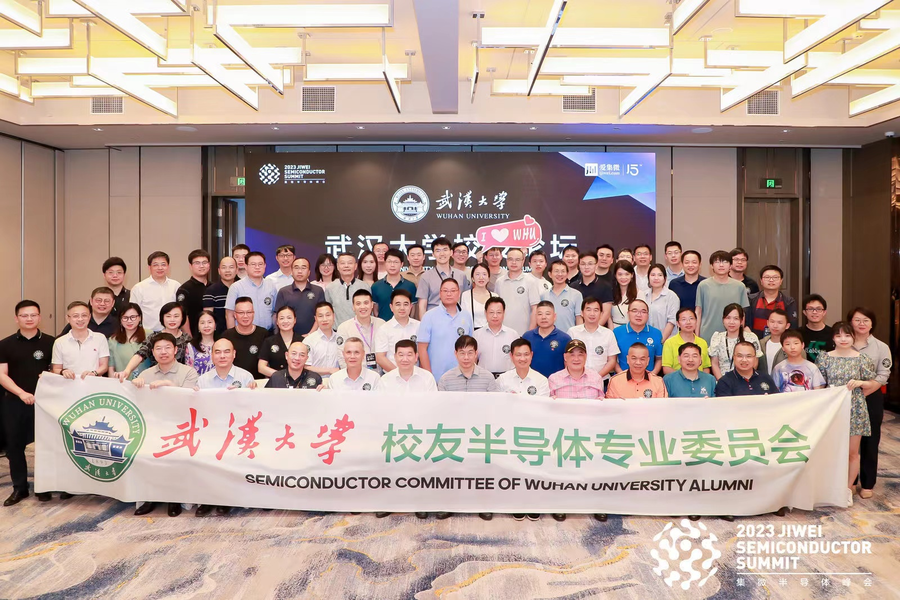
By Greg Gao
(JW Insights) Jun 9 -- Central China's Wuhan University alumni working in semiconductor industry across the country gathered at the JiWei Semiconductor Summit 2023 (JWSS) on June 3 to rub shoulders and shared their latest IC solutions.

Their gathering included a forum attended by over 100 outstanding alumni, including Xu Hongxing, academician of the Chinese Academy of Sciences and Dean of the School of Microelectronics at Wuhan University, and Liu Shiping, executive president of the Wuhan University Xiamen alumni association.
Kong Shuguang, director of Xiamen Science and Technology Bureau, pointed out in his speech that in the past five years, Xiamen’s semiconductor industry has expanded rapidly, and the output value of the integrated circuit industry hit nearly RMB33 billion($4.6 billion) in 2022. Xiamen’s integrated circuit industry chain has been further improved and enriched covering design, manufacturing, packaging and testing, equipment, materials, and other fields.
At the same time, Xiamen is also focusing on the third generation of semiconductors. Kong hoped that the alumni of Wuhan University get more connected with Xiamen’s semiconductor industry.
Li Bo, chairman of 3i-System(中导光电), a large-scale optoelectronic equipment manufacturer, pointed out that the current semiconductor fabrication industry is facing three major challenges, that is, the silicon chip density nears physical limit, design cannot be separated from EDA, the yield rate has become the lifeline for IC players.
The testing equipment can quickly find and solve the root cause of low chip yield. The four major technologies of testing equipment are optical imaging, motion control, image processing analysis algorithm, and data processing.
Founded in 2006, 3i System is a provider of semiconductor testing equipment, Li Bo added.
Regarding the development status of optical chips, , chairman of Litecore(中科光芯), said that optical chips are the core components of the optical communication industry chain, China’s domestic optical chips are scarce, and the current stage is mainly aimed at domestic substitution.
China’s optical chip vendors are accelerating their R&D progress, and China’s self-sufficiency efforts present the characteristics of “from downstream to upstream, low-end to high-end, and effective support by favorable policies.” Currently, leading manufacturers in the downstream have strong strength and large production scale.
Litecore has a complete epitaxial growth, chip processing, and device packaging industry line and can independently design and mass-produce optical chips and devices, according to Su.
Han Hongwei, chairman of Wondersolar(万度光能), delivered a speech titled “Wondersolar: Driving the world with printed solar cell energy.” He expressed his aspiration to significantly reduce the cost of photovoltaic power generation, which would lead to an explosive growth of photovoltaic power generation and hydrogen production technologies, thereby triggering an energy technology revolution and beyond.
The series of splendid and professional speeches sparked enthusiastic responses from the attending alumni, fostering lively discussions and active engagement throughout the event.
The forum also featured a roundtable session, celebrating Wuhan University’s 130th Anniversary, discussed about the ‘bottleneck’ issue in the chip industry, and how Wuhan University alumni can establish an efficient industrial and investment collaboration platform for the chip industry.








